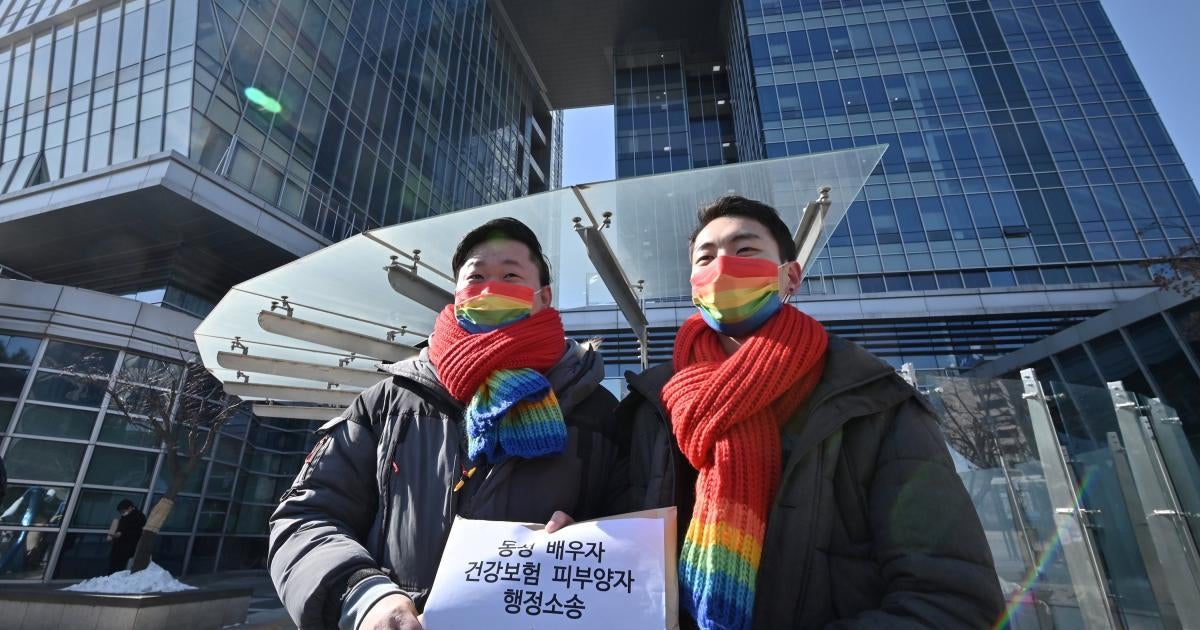This week a South Korean court ruled that a same-sex couple should receive the same benefits as different-sex couples through the National Health Insurance Service (NHIS). It is the first time a court has recognized the rights of a same-sex couple in South Korea.
The Seoul High Court found that the NHIS recognized de facto relations between different-sex couples at its discretion but did not extend the same benefits to same-sex couples. This constituted a clear case of discrimination based on sexual orientation, the court held. The ruling overturned a lower court ruling that declined to recognize the couple as common law spouses, citing the lack of legal recognition for same-sex partnerships in the country.
South Korea does not recognize same-sex partnerships, but the two men held a symbolic wedding ceremony in 2019, and one of them successfully registered the other as his spouse in February 2020, allowing him access to his employer’s health insurance plan. When the story became public months later, the NHIS swiftly reversed course and revoked his partner’s dependent status. The couple sued to have the benefits restored.
While the court ruled that it could not recognize a de facto marriage between same-sex couples, the principle of equality requires the national health insurance agency to apply equal treatment to all couples, as the NHIS law does not explicitly specify coverage of common law couples. The court found that the NHIS did not treat de facto same-sex couples equally and ruled in favor of the couple accessing health insurance coverage.
The NHIS said it will appeal the ruling to the Supreme Court.
This case is significant for upholding the principles of equality and nondiscrimination. The government should expand protections for same-sex couples and take measures to combat widespread discrimination against lesbian, gay, bisexual, and transgender (LGBT) people in schools, employment, housing, and other domains, which leaves them highly vulnerable to mistreatment and abuse.
In the region, Australia, New Zealand, and Taiwan have all extended marriage equality to same-sex partners. A recent court ruling in Japan maintained the prohibition on same-sex marriage, but acknowledged that a lack of legal protection for same-sex families violated their rights. Lawmakers in Thailand are considering options to recognize same-sex relations.
The Seoul High Court’s ruling highlights the need to address discrimination experienced by same-sex couples when their relationships are not recognized by law.



